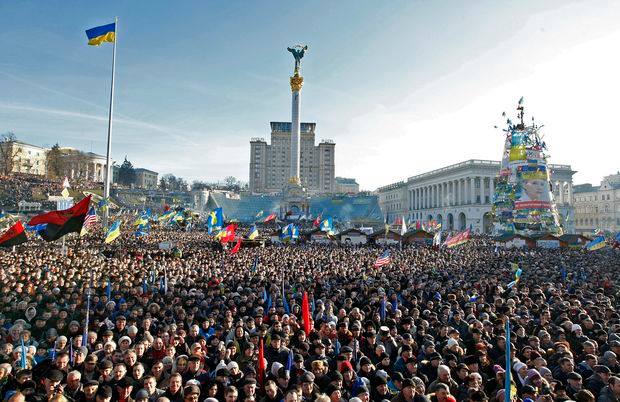A few days ago, Karine Gevorkyan, a leading Yerevan orientalist, said that Armenia, as a result of the shortcomings of its own government, the influence of the Armenian diaspora, and the work for Western governments, is rapidly drifting toward becoming “a second Ukraine” opposed to Moscow and allied with the West.
She complained that Armenians favorably disposed to Moscow “do not now have a single pro-Russian resource or any pro-Russian politicians … we have lost all this” and thus the country finds itself at the edge of an explosion like the one that has already occurred in Ukraine.
In comments to Vestnik Kavkaza, two Russian experts suggest that Gevorkyan’s suggestions are no exaggeration and that both Moscow and Yerevan should not only be worried but should take immediate steps to change the course of events the orientalist suggests will lead to what they say would be a disaster.
Nikita Isayev
, director of the Moscow Institute of Current Economics, says that the situation she describes is the result of the acceptance of the view that Armenian President Serzh Sargsyan is “the main pro-Russian politician in the republic.” That has made Armenia “a hostage” to his declining popularity.
The current “level of trust in Sargsyan,” he continues, “and as a result to Russia as well now is extremely low.” And what makes this especially dangerous is that “Russia has not demonstrated any clear political line with regard to Armenia,” something anti-Russian forces have been quick to exploit.
“Of course,” Isayev continues, “Western special services, in the first instance, English, French and American intelligence agencies” are playing a role, “and their work is bringing results,” which carry with them “significant external risks for Russia” including the possible “loss of the last official Russian advance post in the Transcaucasus at the gates to the Middle East.”
The overall trend is not good, he says; and “the most radical scenario is a possible direct armed conflict in which Russia may find itself opposed by Armenia as a member of NATO or [at least] an ally of the North Atlantic alliance.” That outcome is so bad that Moscow must deploy “’soft force’” to ensure it doesn’t happen.
Similar efforts need to be made “everywhere on the post-Soviet space” because “Armenia is an ally on which like a litmus test are visible all the difficulties” the Russian government now faces. Most important, Moscow must turn away from oligarchic powers and work with small and mid-sized industry and with a variety of political forces rather than just those of Sargsyan.
Isayev’s views are echoed by Sergey Markov, director of the Moscow Institute for Political Research
, who called on Yerevan to take more active steps to suppress “foreign financing of anti-Russian campaigns.” To that end, Moscow and Yerevan must devote more attention to the dangers ahead if they do nothing.
If things continue, Markov argues, “Armenia could be transformed into yet another state hostile to Russia, one like Ukraine or the Baltics or Moldova.” That isn’t what the Armenian people want, he says; but unless steps are taken, the oligarchic regime may ignore their wishes and pursue only its own.
Yerevan must take the lead in opposing this shift, he argues, with Moscow playing only a supporting role. It must “close foreign foundations which are involved in the unleashing of anti-Russian propaganda” and even more “must adopt a law banning anti-Russian propaganda to the extent it always has catastrophic consequences for these countries.”
Related:
- Armenia is the Vichy France of today, Khzmalyan says
- ‘Nobody talks about the Armenians anymore’
- ‘Russia has de facto occupied Armenia,’ Yerevan expert says
- Moscow agrees to try Gyumri killer in Armenia but in a Russian court
- Russian outpourings into the Caucasus
- Nagorno-Karabakh: Who is to blame and who benefits?





